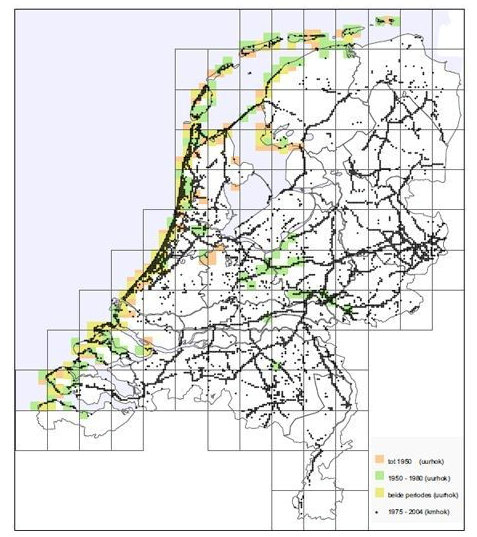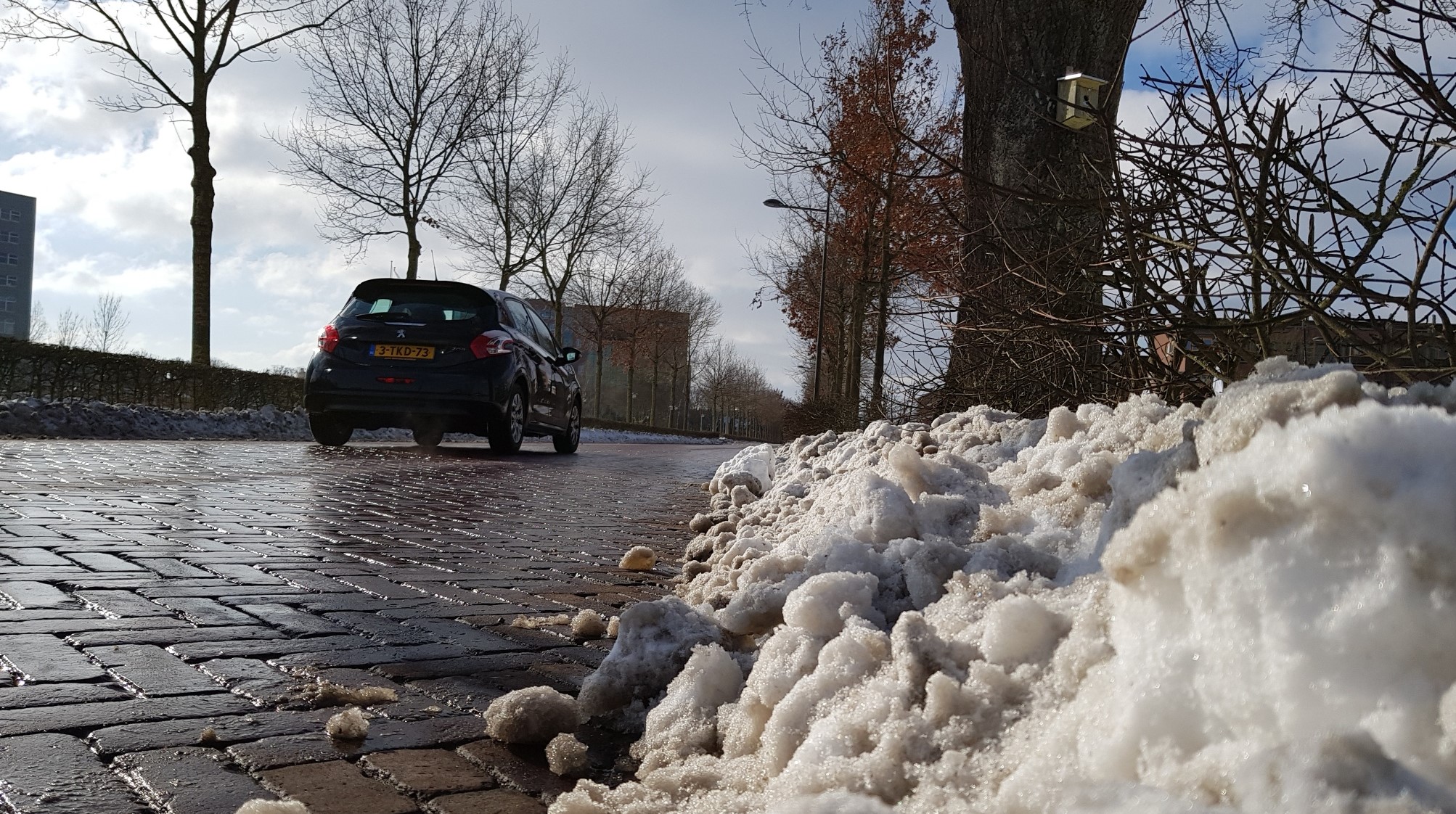Each winter, as soon as the temperature reaches sub-zero values, the question pops up. All this road salt, isn’t it bad for nature? More than one hundred million kilos of salt were scattered this winter alone, most of which enters the sewers once it thaws. A significant portion, however, is absorbed by the verges and groundwater. How can this be good?
Danish scurvy grass

The effects are certainly visible, says vegetation expert Joop Spijker. The best example is the spread of Danish Scurvy Plant over the past decades. This salt-loving plant is seen to spread in a pattern following that of the Dutch highways. The reason: road salt. The verges have become sufficiently saline for this coastal and marsh plant species.
Road salt thus affects how species proliferate. The Danish scurvy grass benefits. But, the effects may also be adverse, not all plants tolerate salt. Spijker: ‘It is crucial that road management has an overview of unique vegetation and take this into account when scattering salt. This applies to trees in particular.’
It is crucial that road management has an overview of unique vegetation and take this into account when scattering salt. This applies to trees in particular
Joop Spijker, researcher Vegetation, Forest and Landscape Ecology
‘Where trees are planted along the scattering routes, it is important to select species that tolerate salt’, Spijker continues. ‘Oaks, for example, or poplars, sycamores and alders. And no prunus avium or sweet chestnuts.’ The table of species (links to Dutch content) created by WUR shows the different characteristics of trees, including their salt tolerance (if known).
Less harsh
‘So, do not plant salt-sensitive trees in the immediate vicinity of busy roads or road salt scattering routes’, Spijker recommends. ‘If you plant the right tree in the right place, the salt has little effect.’ Moreover, Spijker thinks that the salt issue will diminish in time. Climate change causes winters to be less harsh, which means there is less need for the use of road salt.

 Photo: Roelof Kleis
Photo: Roelof Kleis